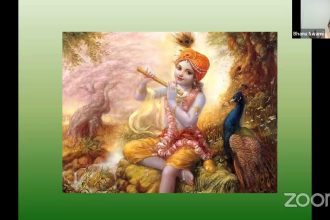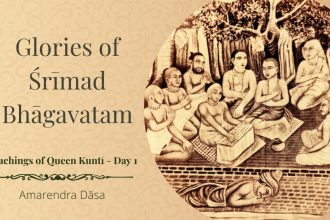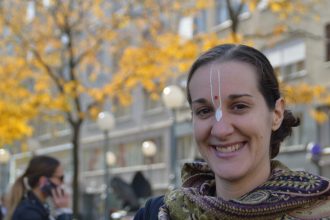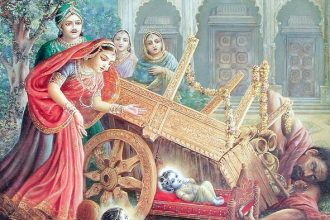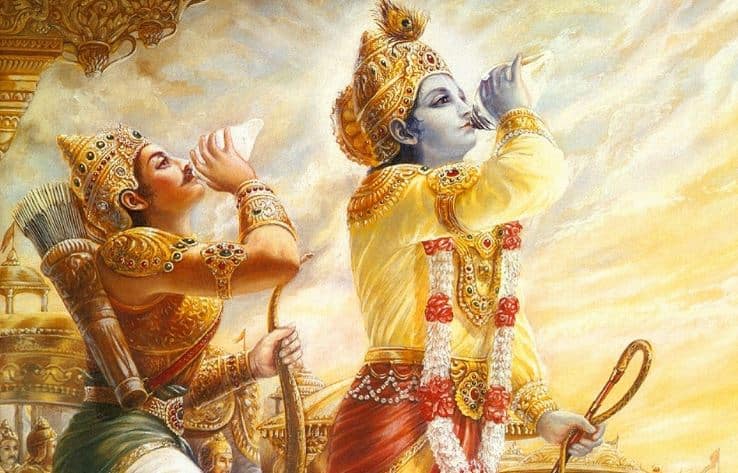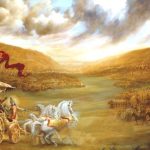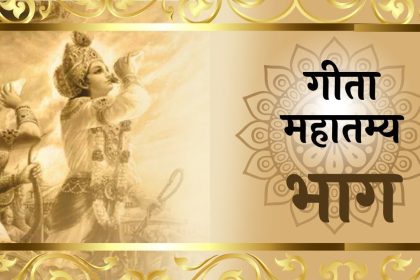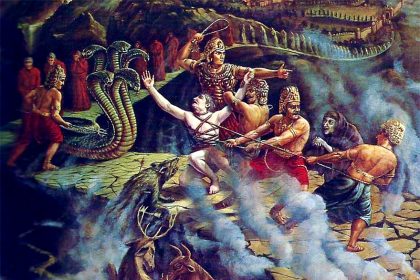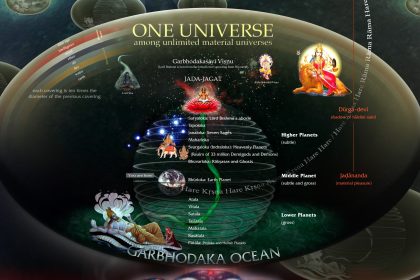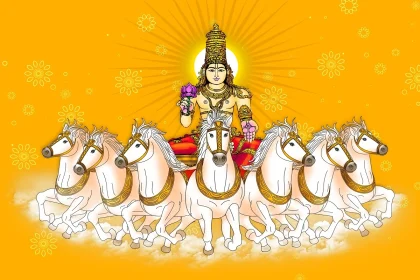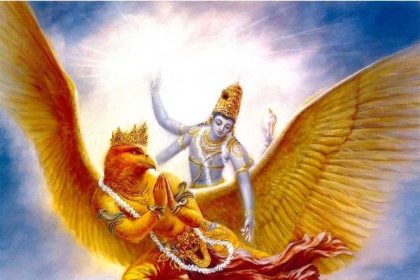TEXT 24
sañjaya uvāca
evam ukto hṛṣīkeśo
guḍākeśena bhārata
senayor ubhayor madhye
sthāpayitvā rathottamam
SYNONYMS
sañjayaḥ uvāca—Sañjaya said; evam—thus; uktaḥ—addressed; hṛṣīkeśaḥ—Lord Kṛṣṇa; guḍākeśena—by Arjuna; bhārata—O descendant of Bharata; senayoḥ—of the armies; ubhayoḥ—both; madhye—in the midst; sthāpayitvā—placing; ratha—uttamam—the finest chariot.
TRANSLATION
Sañjaya said: O descendant of Bharata, having thus been addressed by Arjuna, Lord Kṛṣṇa drew up the fine chariot in the midst of the armies of both parties.
PURPORT
In this verse Arjuna is referred to as Guḍākeśa. Guḍākā means sleep, and one who conquers sleep is called guḍākeśa. Sleep also means ignorance. So Arjuna conquered both sleep and ignorance because of his friendship with Kṛṣṇa. As a great devotee of Kṛṣṇa, he could not forget Kṛṣṇa even for a moment, because that is the nature of a devotee. Either in waking or in sleep, a devotee of the Lord can never be free from thinking of Kṛṣṇa’s name, form, qualities and pastimes. Thus a devotee of Kṛṣṇa can conquer both sleep and ignorance simply by thinking of Kṛṣṇa constantly. This is called Kṛṣṇa consciousness, or samādhi. As Hṛṣīkeśa, or the director of the senses and mind of every living entity, Kṛṣṇa could understand Arjuna’s purpose in placing the chariot in the midst of the armies. Thus He did so, and spoke as follows.
TEXT 25
bhīṣma-droṇa-pramukhataḥ
sarveṣāṁ ca mahī-kṣitām
uvāca pārtha paśyaitān
samavetān kurūn iti
SYNONYMS
bhīṣma—Grandfather Bhīṣma; droṇa—the teacher Droṇa; pramukhataḥ—in front of; sarveṣām—all; ca—also; mahī-kṣitām—chiefs of the world; uvāca—said; pārtha—O son of Pṛthā; paśya—just behold; etān—all of them; samavetān—assembled; kurūn—the members of the Kuru dynasty; iti—thus.
TRANSLATION
In the presence of Bhīṣma, Droṇa and all the other chieftains of the world, the Lord said, “Just behold, Pārtha, all the Kurus assembled here.”
PURPORT
As the Supersoul of all living entities, Lord Kṛṣṇa could understand what was going on in the mind of Arjuna. The use of the word Hṛṣīkeśa in this connection indicates that He knew everything. And the word Pārtha, or the son of Kuntī, or Pṛthā, is also similarly significant in reference to Arjuna. As a friend, He wanted to inform Arjuna that because Arjuna was the son of Pṛthā, the sister of His own father Vasudeva, He had agreed to be the charioteer of Arjuna. Now what did Kṛṣṇa mean when He told Arjuna to “behold the Kurus”? Did Arjuna want to stop there and not fight? Kṛṣṇa never expected such things from the son of His aunt Pṛthā. The mind of Arjuna was thus predicted by the Lord in friendly joking.
TEXT 26
tatrāpaśyat sthitān pārthaḥ
pitṝn atha pitāmahān
ācāryān mātulān bhrātṝn
putrān pautrān sakhīṁs tathā
śvaśurān suhṛdaś caiva
senayor ubhayor api
SYNONYMS
tatra—there; apaśyat—he could see; sthitān—standing; pārthaḥ—Arjuna; pitṝn—fathers; atha—also; pitāmahān—grandfathers; ācāryān—teachers; mātulān—maternal uncles; bhrātṝn—brothers; putrān—sons; pautrān—grandsons; sakhīn—friends; tathā—too; śvaśurān—fathers-in-law; suhṛdaḥ—well—wishers; ca—also; eva—certainly; senayoḥ—of the armies; ubhayoḥ—of both parties; api—including.
TRANSLATION
There Arjuna could see, within the midst of the armies of both parties, his fathers, grandfathers, teachers, maternal uncles, brothers, sons, grandsons, friends, and also his fathers-in-law and well-wishers.
PURPORT
On the battlefield Arjuna could see all kinds of relatives. He could see persons like Bhūriśravā, who were his father’s contemporaries, grandfathers Bhīṣma and Somadatta, teachers like Droṇācārya and Kṛpācārya, maternal uncles like Śalya and Śakuni, brothers like Duryodhana, sons like Lakṣmaṇa, friends like Aśvatthāmā, well-wishers like Kṛtavarmā, etc. He could see also the armies which contained many of his friends.


